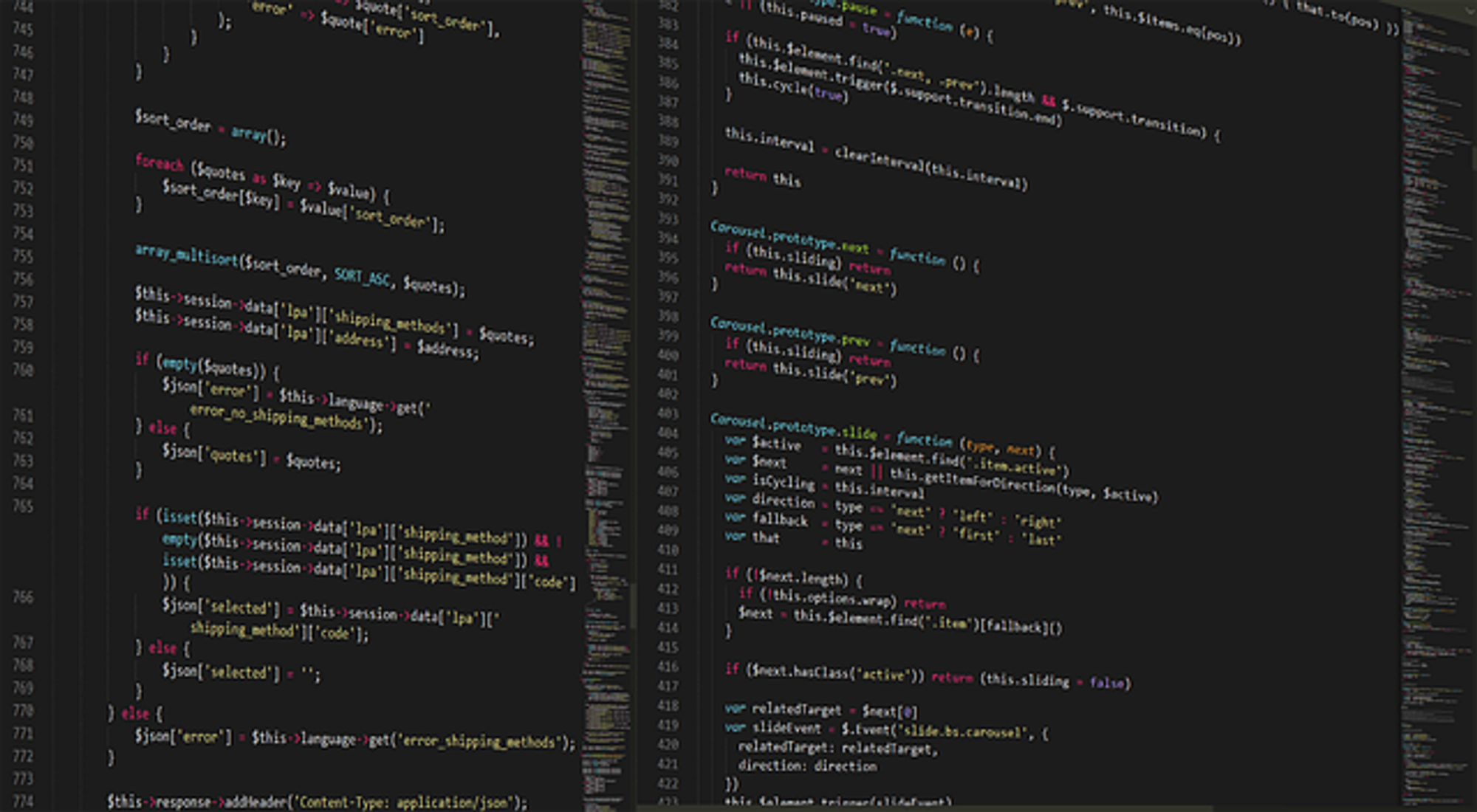Observability Engineering: Achieving Excellence in Production

In software development, maintaining the reliability and performance of applications in the production environment is not just important, but critical for success. Observability Engineering has established itself as a key discipline that provides development and operations teams with the tools and methods to observe, analyze, and optimize the behavior of their systems in real time. This article delves deeper into the world of Observability Engineering, compares it with the traditional approach of monitoring, highlights its fundamental values, and addresses the complex challenges that teams face.
Observability vs. Monitoring

The distinction between Observability and Monitoring is essential to understand the full scope of Observability Engineering. Monitoring focuses on tracking specific, predefined metrics and logs to monitor the state and performance of applications. It is predominantly a reactive process, aimed at detecting and alerting to known issues, based on set thresholds.
Observability, in contrast, takes a more comprehensive, proactive approach. It strives to achieve a deep understanding of system behavior through the analysis of data from a variety of sources, including metrics, traces, and logs. Observability goes beyond merely stating that a problem exists and provides context-rich insights into the causes, making it possible to effectively address the root of problems.
Application Performance Monitoring (APM)

Application Performance Monitoring (APM) plays a central role in the arsenal of Observability Engineering. APM tools enable detailed examination and analysis of application performance, support developers in identifying and addressing issues before they impact the end user, and offer valuable insights into the architecture and performance trends of the application over time. These tools are indispensable for Observability Engineering, as they not only provide insights into application performance but also help understand and address the causes of performance issues.
Values of Observability Engineering

Observability Engineering plays a crucial role in enhancing operational efficiency and minimizing Mean Time to Repair (MTTR). Its proactive nature enables teams to detect potential problems early and take preventive measures, which not only improves user experience but also increases customer satisfaction. Moreover, Observability Engineering promotes a culture of transparency and collaboration within teams by providing all stakeholders with a unified view of system data and its performance.
What is observability-driven development?
Observability-driven Development (ODD) represents a methodology where the principles and tools of Observability Engineering are integrated directly into the software development process. Developers utilize Observability practices to gain continuous insights into the impacts of their code changes, which not only improves the quality and reliability of the code but also accelerates the development process by identifying and addressing issues early in the cycle.
Observability and High-Performance Engineering
The adoption of Observability empowers engineering teams to develop and operate high-performance and reliable applications. It supports rapid diagnosis and resolution of issues, promotes system performance optimization, and facilitates capacity and resource planning. Observability provides essential data and insights necessary for informed, data-driven decisions, thus forming a cornerstone for success in agile software development and operation of modern IT systems.
Challenges of Observability Engineering

Despite its benefits, Observability Engineering faces challenges. These include the complexity of data collection and analysis, integrating Observability into existing systems and processes, and scaling Observability practices in large and dynamic environments. Choosing the right tools and developing an effective Observability strategy are crucial to overcoming these challenges.
Implementing Observability Engineering in an organization comes with challenges that go beyond the aspects already mentioned. The amount and variety of data needed for effective Observability can be overwhelming. Companies must decide which data to collect, how to store it, and how to analyze it to gain useful insights. This requires not just powerful tools but also expertise in data analysis and management.
Another obstacle is the need to create a culture of Observability. This means that all members of a development and operations team must understand and recognize the value of Observability. They must be able to use the data provided by Observability to make decisions and proactively address issues. This may require training and a change in work practices, which takes time and resources.
Best Practices for Observability Engineering
To address the challenges of Observability Engineering and fully leverage its benefits, companies should apply best practices. This includes implementing a scalable Observability platform that can integrate various data sources. It is important that this platform is capable of scaling with the growth of the company and the increasing complexity of systems.
Another best practice is the automation of data collection and analysis to minimize human errors and increase efficiency. Automated alerts and dashboards can help teams respond quickly to issues and observe trends over time.
Furthermore, it is important to foster a culture of continuous improvement. Teams should be encouraged to regularly reflect on the insights gained through Observability and use them to optimize systems. This includes the regular review of the Observability strategy and tools to ensure they meet the needs of the business.
The Future of Observability Engineering

The future of Observability Engineering looks promising as companies increasingly recognize the value it provides for the development and operation of software. With the advancement of technologies such as artificial intelligence (AI) and machine learning (ML), Observability tools will become even more powerful. They will be able to offer deeper insights and generate automated solutions for complex problems.
Another trend is the increasing integration of Observability throughout the entire software development cycle. This means that Observability is no longer just a task for the operations team but becomes an integral part of design, development, and maintenance of software. This development promotes even closer collaboration between developers, operations teams, and business analysts to create high-quality and reliable software products together.
Conclusion
Observability Engineering is a critical factor for success in modern software development, going far beyond traditional monitoring. By implementing effective Observability strategies, companies can not only resolve issues faster but also improve the performance and reliability of their systems.
The challenges associated with adopting Observability can be overcome by applying best practices and promoting a culture of continuous improvement. With the ongoing advancement of technologies and practices, Observability Engineering will continue to play a central role in software development, enabling companies to achieve their goals in an increasingly complex digital world.
Frequently Asked Questions
What is the difference between Observability and Monitoring?
Monitoring tracks predefined metrics and alerts, while Observability provides a deeper understanding of system behavior through the analysis of data from various sources.
How does Observability contribute to improving application performance?
Observability enables teams to proactively identify and address issues, optimize system performance, and make better capacity decisions.
Is Observability only relevant for large companies?
No, companies of all sizes can benefit from the insights and improvements enabled by Observability Engineering.

We light the path through the tech maze and provide production-grade solutions. Embark on a journey that's not just seamless, but revolutionary. Navigate with us; lead with clarity.
Connect with an Expert
Salih Kayiplar | Founder & CEO


Containerization & Microservices
Containerization & Orchestration ConsultingApplication Modernization ConsultingKubernetes ConsultingDocker ConsultingCI/CD & GitOps
CI/CD ConsultingGitOps ConsultingArgoCD ConsultingFluxCD ConsultingJenkins ConsultingFlagger ConsultingSecurity & Compliance
DevSecOps ConsultingHashiCorp Vault ConsultingSonarQube ConsultingSnyk ConsultingKyverno ConsultingOpen Policy Agent ConsultingNetworking
Cloud Native Networking ConsultingAccess & Identity Management
HashiCorp Boundary ConsultingKeycloak ConsultingHashiCorp Vault ConsultingContainer Registry & Dependencies
Registry & Package Management ConsultingSoftware Dependency ConsultingHarbor ConsultingDragonFly ConsultingJFrog ConsultingRenovate ConsultingTesting & Chaos Engineering
Testing & Chaos Engineering ConsultingChaos Mesh ConsultingTerratest ConsultingLitmus ConsultingObservability & Analysis
Prometheus ConsultingThanos ConsultingOpen Telemetry ConsultingJaeger ConsultingStreaming & Messaging
NATS ConsultingCloud Infrastructure Deployment
Cloud Infrastructure ConsultingCloud Infrastructure Deployment ConsultingTerraform ConsultingPulumi ConsultingCrossplane ConsultingTerragrunt ConsultingCloud Migration
Cloud Migration ConsultingDisaster Recovery
Disaster Recovery ConsultingCloud Maintenance
Cloud Maintenance ConsultingContainerization & Microservices
Containerization & Orchestration ConsultingApplication Modernization ConsultingKubernetes ConsultingDocker ConsultingCI/CD & GitOps
CI/CD ConsultingGitOps ConsultingArgoCD ConsultingFluxCD ConsultingJenkins ConsultingFlagger ConsultingObservability
Observability ConsultingGrafana ConsultingGrafana Loki ConsultingGrafana Tempo ConsultingGrafana Mimir ConsultingOpenTelemetry ConsultingJaeger ConsultingThanos ConsultingPrometheus ConsultingSecurity & Compliance
DevSecOps ConsultingHashiCorp Vault ConsultingSonarQube ConsultingSnyk ConsultingKyverno ConsultingOpen Policy Agent ConsultingNetworking
Cloud Native Networking ConsultingAccess & Identity Management
HashiCorp Boundary ConsultingKeycloak ConsultingHashiCorp Vault ConsultingContainer Registry & Dependencies
Registry & Package Management ConsultingSoftware Dependency ConsultingHarbor ConsultingDragonFly ConsultingJFrog ConsultingRenovate ConsultingTesting & Chaos Engineering
Testing & Chaos Engineering ConsultingChaos Mesh ConsultingTerratest ConsultingLitmus ConsultingService Mesh & Loadbalancer
Load Balancer ConsultingService Mesh ConsultingIngress Controller ConsultingLinkerD ConsultingIstio ConsultingHashicorp Consul ConsultingKong ConsultingObservability & Analysis
Prometheus ConsultingThanos ConsultingOpen Telemetry ConsultingJaeger ConsultingStreaming & Messaging
NATS ConsultingCloud Infrastructure Deployment
Cloud Infrastructure ConsultingCloud Infrastructure Deployment ConsultingTerraform ConsultingPulumi ConsultingCrossplane ConsultingTerragrunt ConsultingCloud Migration
Cloud Migration ConsultingDisaster Recovery
Disaster Recovery ConsultingCloud Maintenance
Cloud Maintenance ConsultingContainerization & Microservices
Containerization & Orchestration ConsultingApplication Modernization ConsultingKubernetes ConsultingDocker ConsultingCI/CD & GitOps
CI/CD ConsultingGitOps ConsultingArgoCD ConsultingFluxCD ConsultingJenkins ConsultingFlagger ConsultingObservability
Observability ConsultingGrafana ConsultingGrafana Loki ConsultingGrafana Tempo ConsultingGrafana Mimir ConsultingOpenTelemetry ConsultingJaeger ConsultingThanos ConsultingPrometheus ConsultingSecurity & Compliance
DevSecOps ConsultingHashiCorp Vault ConsultingSonarQube ConsultingSnyk ConsultingKyverno ConsultingOpen Policy Agent ConsultingNetworking
Cloud Native Networking ConsultingAccess & Identity Management
HashiCorp Boundary ConsultingKeycloak ConsultingHashiCorp Vault ConsultingContainer Registry & Dependencies
Registry & Package Management ConsultingSoftware Dependency ConsultingHarbor ConsultingDragonFly ConsultingJFrog ConsultingRenovate ConsultingTesting & Chaos Engineering
Testing & Chaos Engineering ConsultingChaos Mesh ConsultingTerratest ConsultingLitmus ConsultingService Mesh & Loadbalancer
Load Balancer ConsultingService Mesh ConsultingIngress Controller ConsultingLinkerD ConsultingIstio ConsultingHashicorp Consul ConsultingKong ConsultingObservability & Analysis
Prometheus ConsultingThanos ConsultingOpen Telemetry ConsultingJaeger ConsultingStreaming & Messaging
NATS ConsultingCloud Infrastructure Deployment
Cloud Infrastructure ConsultingCloud Infrastructure Deployment ConsultingTerraform ConsultingPulumi ConsultingCrossplane ConsultingTerragrunt ConsultingCloud Migration
Cloud Migration ConsultingDisaster Recovery
Disaster Recovery ConsultingCloud Maintenance
Cloud Maintenance Consulting© 2025 CloudCops - Pioneers Of Tomorrow